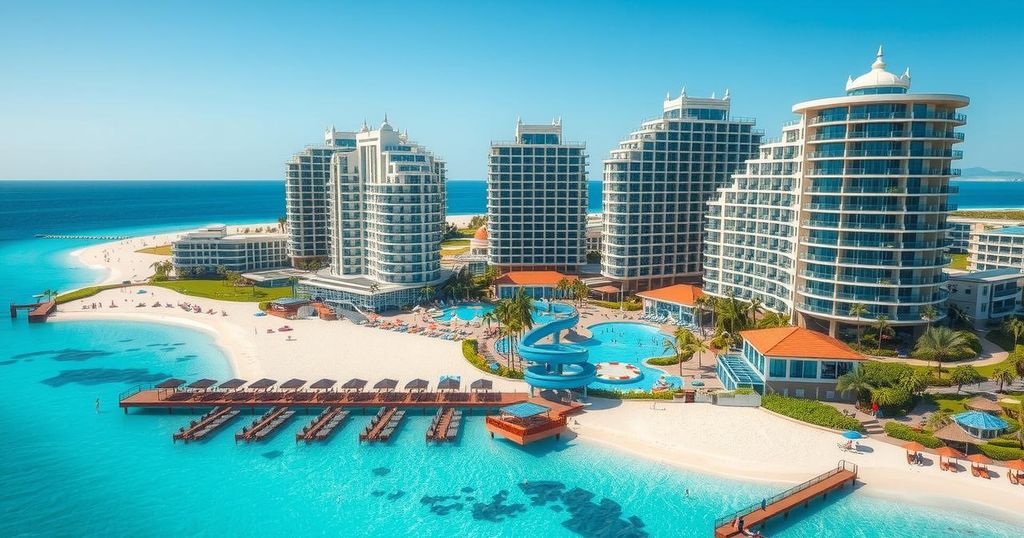Kim Jong Un Restates Support for Russia’s Actions in Ukraine

- Kim Jong Un supports all Russian actions in Ukraine.
- Sergey Lavrov visited North Korea amidst military cooperation.
- North Korea may deploy up to 30,000 soldiers to Russia.
- Russian and North Korean ties deepen with military logistics exchange.
- Economic initiatives indicate possible tourism growth in Wonsan.
Kim Jong Un’s Strong Support for Russian Actions
In a striking declaration, North Korean leader Kim Jong Un reiterated his unwavering support for Russia’s actions in Ukraine during a meeting with Foreign Minister Sergey Lavrov. This encounter took place at a newly renovated beach resort in Wonsan, a move that emphasizes the deepening ties between Pyongyang and Moscow amid the ongoing conflict. Lavrov’s visit comes at a pivotal moment, as North Korea reportedly prepares to send up to 30,000 additional soldiers to aid Russia in its intensified military effort in Ukraine.
Lavrov’s Visit Reinforces North Korea’s Military Ties
Kim’s assertion of ‘unconditional support’ was highlighted during the meeting and was reported by the Korean Central News Agency. The meeting also signified a significant step in strengthening the military and diplomatic relationships between the two nations, especially with Russian President Putin sending his greetings through Lavrov. Moreover, Lavrov’s discussions with his North Korean counterpart, Choe Son Hui, demonstrated a shared commitment to the objectives of Russia’s military offensive in Ukraine.
North Korea’s Military Involvement in Russian Operations
As the situation escalates, the geopolitical implications of such support cannot be overlooked. Notably, North Korean soldiers are being increasingly integrated into Russian military operations, facing significant casualties, which suggests a deeper military alliance. The evidence speaks for itself, with recent reports of North Korean artillery manuals being translated into Russian, highlighting the operational alignment. Meanwhile, as Russia amplifies its assaults on Ukraine, with damage reports emerging from various regions, the situation remains critical, underscoring the volatility in Eastern Europe.
To summarize, Kim Jong Un’s reaffirmation of support for Russia during the ongoing conflict in Ukraine marks a considerable strengthening of ties between the two nations. Lavrov’s visit not only emphasizes North Korea’s role in aiding Russia’s military efforts but also hints at a growing dependence on Pyongyang for military resources amid increasing hostilities. The ongoing operations and the potential ramifications indicate that this alliance may significantly alter security dynamics in the region.







